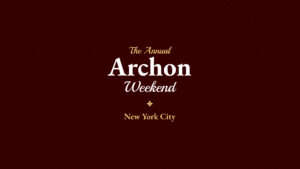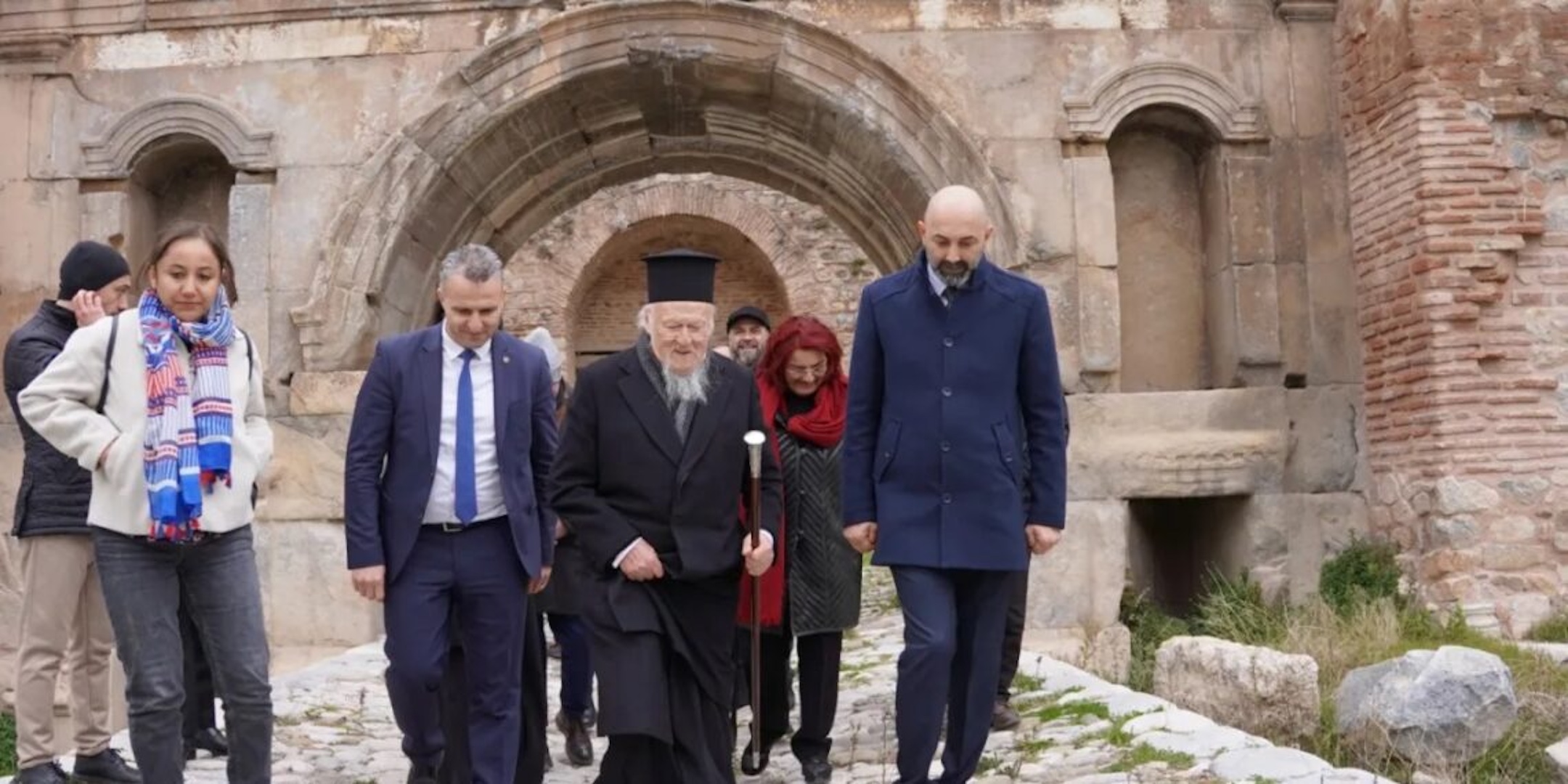Speaking at the Patriarchal Marasli Urban School in Constantinople on March 13, 2025 at a conference entitled “Consubstantial with the Father,” which was dedicated to the First Ecumenical Council of Nicaea, His All-Holiness Ecumenical Patriarch Bartholomew emphasized the ongoing and eternal importance of that Holy and Sacred Synod. As the 1700th anniversary of the Council of Nicaea approaches, it retains its cardinal importance in setting the pattern for how the Church is to determine the truth in matters that are in dispute.
“The convocation of the Council of Nicaea,” said His All-Holiness, “represents the pinnacle of the Church’s ‘primordial conciliarity’ and ‘ecumenical consciousness,’ while simultaneously signifying the emergence of a new conciliar structure and practice—namely, that of the Ecumenical Council.”
The Council of Nicaea was the first Holy Synod to which all the bishops of the entire oikoumene were invited, and all the Churches of the Roman Empire were represented. Under the guidance of the Holy Spirit, the Holy Fathers of the Council articulated key matters of Christian doctrine, including the divinity of our Lord Jesus Christ, and stated those doctrines clearly in the Nicene Creed, which is still recited during the Divine Liturgy in all churches worldwide as the quintessential expression of our Christian Faith.
The Nicene Creed was formulated in response to controversies that were settled at the Council. His All-Holiness reminded conference attendees that “The Nicene Creed, beginning with ‘We believe…,’ is a proclamation of the Church’s common faith, formulated in response to Arian heresy, which sought to replace the theology of the pre-eternal Word of God—who was ‘in the beginning’ and became incarnate for our salvation—with what has been called a ‘cosmological philosophizing.’” Arius, a priest of Alexandria, denied the divinity of the Lord and was anathematized as a heretic at the Council.
The Ecumenical Patriarch also noted another significant result of the Council of Nicaea: the fact that “the City of Constantine, inaugurated five years after the Council of Nicaea, was destined to become the center of ecclesiastical life, hosting four Ecumenical Councils that were decisive for the identity and course of the Church in the world. It is here that the Ecumenical Patriarchate maintains its unwavering Throne as the vigilant guardian of our pure Orthodox faith and sacred traditions.”
His All-Holiness’ reminders about the importance of the Council of Nicaea followed his visit, in the company of members of the Holy and Sacred Synod, other hierarchs, and his staff, to Nicaea in Bithynia on Monday, February 10, 2025. During that meeting, he met with the mayor of Nicaea, Kağan Mehmet Usta, and other officials; they discussed the significance of the 1700th anniversary of the Council and the upcoming commemorations of it. His All-Holiness and those who were with him also visited the ruins of the Byzantine Palace, where the Council of Nicaea was actually held, as well as remains of the Basilica of Saint Neophytos the Martyr, the Basilica of Hagia Sophia in Nicaea, the ruins of the Church of the Dormition of the Theotokos and its Sacred Spring, and the Leukê and Constantinople Gates along the Byzantine walls of the city.
In his address to the conference, the Ecumenical Patriarch emphasized that the Council of Nicaea today “stands as a landmark in the formation of the Church’s doctrinal identity and remains the model for addressing doctrinal and canonical challenges on an ecumenical level.” He added that “the 1700th anniversary of its convocation serves as a reminder to Christendom of the principles of the undivided Church and the value of a common struggle against misinterpretations of our faith, with an unwavering point of reference in the God-Word, consubstantial with the Father, who assumed our form, liberated us from enslavement to the adversary, and granted us eternal life.”
His All-Holiness also stated that to understand the doctrines that were so precisely formulated at the Council of Nicaea required a heart that was open: “The work of theology is to reveal the soteriological dimension in all things. The correct understanding of the Church’s doctrines and their interpretation in existential terms requires, alongside participation in the ecclesial reality, a sensitivity and genuine concern for humanity and the trials of human freedom.”
This would involve a conscious and continuous effort to become truly Christlike: “In this sense,” His All-Holiness continued, “the proclamation of our faith in the Triune God and in the Incarnate Word—our Lord and Savior Jesus Christ—must be accompanied by a tangible response to His exhortation that we ‘become neighbors’ to those who have fallen among thieves and to His ‘least brethren,’ with whom the Lord identified Himself, linking our eternal salvation to ‘whatever you did for one of the least of these, you did for Me’ (Matt. 25:40).”
It is thus in humility and charity that theological knowledge and wisdom are found.







